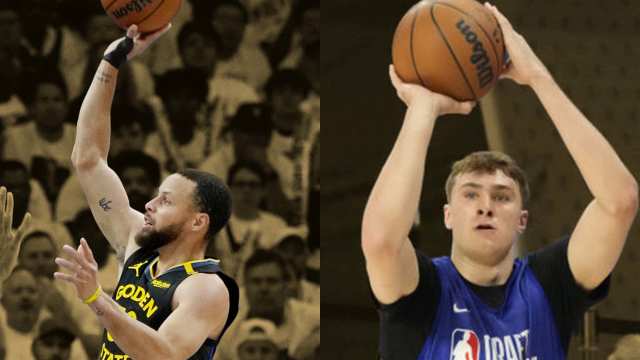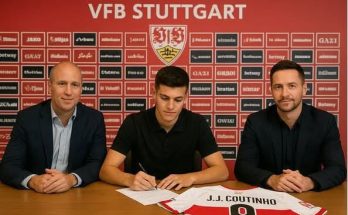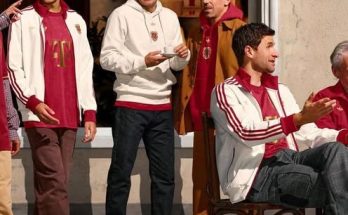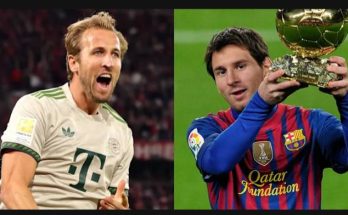Shaquille O’Neal is never one to bite his tongue, and when it comes to young talent entering the NBA, he tends to keep it blunt, wise, and brutally honest. That same energy was on full display recently when he was asked about Duke phenom Cooper Flagg and the possibility of him being drafted by the Dallas Mavericks. O’Neal, a four-time NBA champion and Hall of Famer, had a message for the 6-foot-9 do-it-all forward—one that was rooted in experience, not speculation.
“After that second year, no more excuses,” O’Neal said when discussing Flagg’s future in the NBA. “You get your rookie season to learn. Your second year, you adjust. But by year three, it’s time to produce. Time to win. That’s how I see it. And that’s the advice I’d give Cooper if he ends up in Dallas.”
Coming from anyone else, those words might sound like empty veteran talk. But from Shaq, a man who came into the league with hype and delivered from day one, it carries a different weight. The statement isn’t just a challenge—it’s a roadmap. And for Cooper Flagg, whose name is already etched into the fabric of modern basketball thanks to a sensational high school and one historic season at Duke, those words could become the mantra of his NBA journey.
Flagg, often compared to Larry Bird with a mix of Kevin Garnett’s defensive intensity, is more than just a talented teenager. He’s the face of a new wave of basketball—skilled, unselfish, gritty, and hungry. At Duke, he captivated audiences with his scoring, passing, rebounding, and above all, his leadership. He didn’t just play the game—he influenced every second of it. So it’s no surprise that NBA teams are lining up, and if the draft plays out in a certain way, Flagg could find himself wearing Mavericks blue next season.
Dallas, fresh off an NBA Finals appearance, is a team built around the singular genius of Luka Dončić and the timely brilliance of Kyrie Irving. With Flagg in the mix, it wouldn’t just be a matter of fit—it would be about expectation. The Mavericks aren’t rebuilding. They’re competing. And if Flagg enters that locker room, the clock on development won’t tick for long.
That’s precisely why Shaq’s words matter so much.
“I like Cooper,” O’Neal continued. “Kid can play. He’s got all the tools. But this ain’t college. This ain’t AAU. The league is full of killers. And when you’re on a good team like Dallas, you don’t get time to find yourself—you better show up ready.”
O’Neal has long been a believer in tough love. He’s openly critiqued young stars, pushed veterans to do more, and defended greatness when the criticism came. His track record as both player and analyst is built on one core principle: you either deliver or you don’t.
When he says “no more excuses,” he’s speaking from a life that saw him dominate early, win rings with legends, and demand the most from himself and those around him. And in Flagg’s case, Shaq isn’t being dismissive. Quite the opposite—he’s acknowledging the potential to be great but setting a bar that won’t budge.
The idea of Flagg in Dallas brings with it a flurry of basketball questions. How would he coexist with Luka? Would he start or come off the bench? Could Jason Kidd unlock his full potential without stifling his creativity? But beneath all that lies the core truth O’Neal pointed out: the NBA doesn’t wait for you to get comfortable. You either evolve fast, or you get left behind.
For Flagg, that means transitioning from college stardom to professional productivity without a pause. He’ll face veterans who’ve been doing this longer, stronger wings, smarter defenders, and faster offenses. The plays that worked in the ACC may not translate in the NBA unless he adapts immediately.
But if anyone’s built for that, it might be Flagg.
His instincts, motor, and IQ are often cited by scouts as generational. He doesn’t just play hard—he thinks faster than his opponents. He sees angles before they develop, closes gaps with a burst of anticipation, and never shies away from the moment. Those are qualities that matter even more on a team like Dallas, where margins are thin, expectations are thick, and the margin for error is slim.
“I think a guy like Flagg could help Luka right away,” O’Neal said. “Not because he’ll score 30. But because he can do everything else. Defense, passing, effort. That’s what wins you games in April, May, and June.”
O’Neal’s appreciation for defense, often overlooked in conversations about his own career, has grown louder over time. He’s praised players like Draymond Green and Bam Adebayo for their ability to impact the game without scoring. In Flagg, he sees a player who can follow that same mold—but with more upside on offense.
Still, the pressure will be immense. There are no “project years” in Dallas. The Mavericks will expect Flagg to contribute in meaningful ways from day one. And the media, already in love with his rise, will watch every move.



